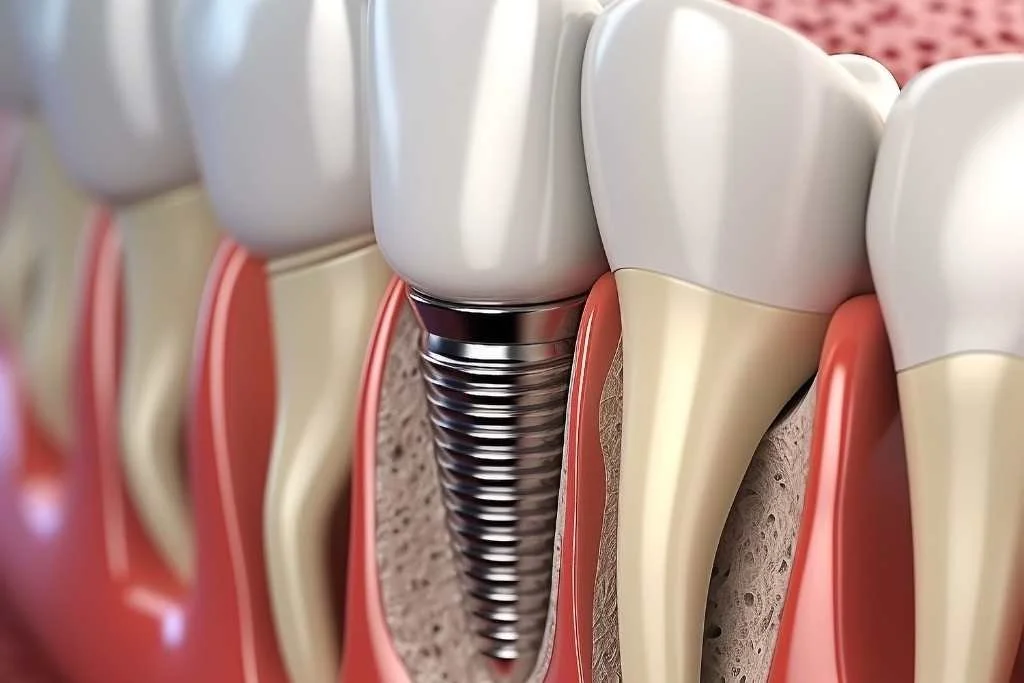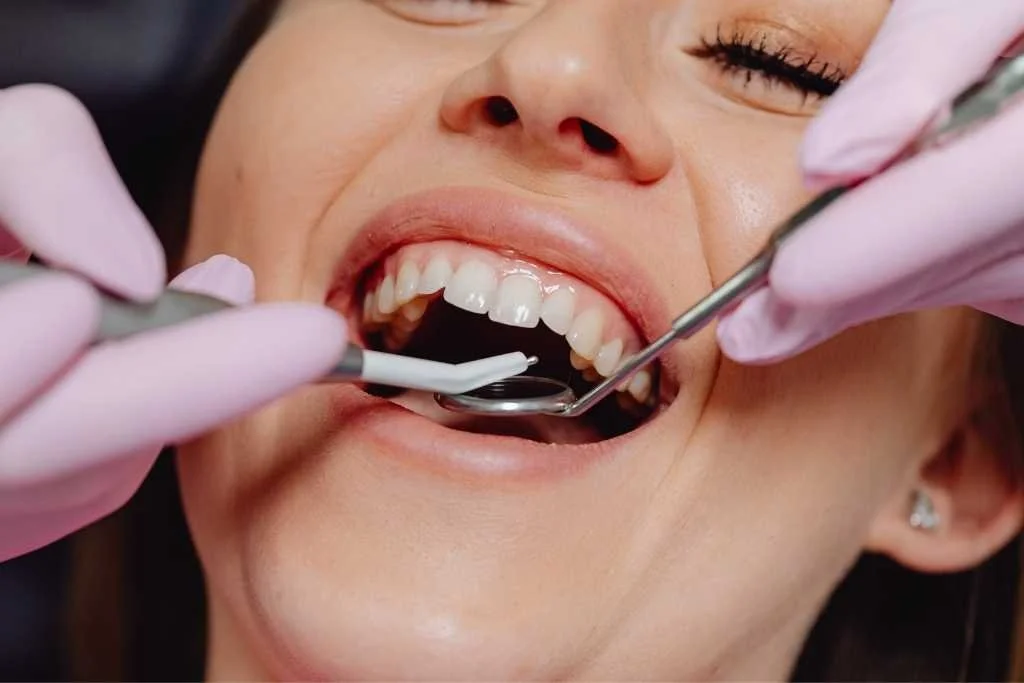Saving Your Natural Teeth vs. Dental Implants: Why Teeth Are Built to Last
What This Blog Post Will Cover
In this article, you’ll learn:
- Why natural teeth are biologically stronger than implants
- How teeth resist infection better than implants
- Why regeneration and healing are more predictable around natural teeth
- When implants are valuable and when teeth should be saved
- Treatment planning options for protecting your own teeth
Many patients ask: “Wouldn’t it be easier to just pull the tooth and place an implant?” While dental implants have transformed modern dentistry, the truth is that no implant can match the design, biology, and resilience of your natural teeth. Whenever possible, preserving your own teeth should always be the first priority.
Dental implants are an excellent option for replacing missing teeth, but they cannot fully replicate the natural defense systems, connective tissue, and biologic strength of your original dentition.
How Teeth Attach to Bone vs. Implants
One of the biggest differences between teeth and implants is how they connect to the surrounding bone and gum tissues.
Natural teeth are anchored by the periodontal ligament, a specialized connective tissue that acts like a natural shock absorber. This ligament provides:
A stable, dynamic connection to bone
Blood supply to surrounding tissues
Nerve signals that let you sense pressure and movement
Biologic communication with teeth and gums
Dental implants, in contrast, are fused directly to natural bone through a process called osseointegration. While this creates a stable base for chewing, the attachment is rigid. Implants lack the natural shock absorption of teeth, which can make them more prone to long-term complications such as screw loosening, fracture, or bone resorption.
Why Teeth Resist Infection Better Than Implants
Periodontal disease is a bacterial infection that breaks down the supporting bone and gum line around teeth. Both teeth and implants are vulnerable to infection, but teeth have a stronger defense.
The periodontal ligament acts as part of the body’s immune system, providing fibers that form a seal and help stop bacteria from spreading. Implants lack this biologic seal, and the surrounding soft tissue is more vulnerable to breakdown.
This is why peri-implantitis (the implant version of gum disease) often develops more quickly and causes more severe bone loss than periodontitis around natural teeth.
Why Regeneration Works Better Around Teeth
Another key advantage of natural teeth is their ability to respond to periodontal therapy and regenerative treatment.
Treatment often begins with scaling and root planing, which removes bacteria and toxins from tooth surfaces. When more support is needed, dentists can use bone graft material and biologic mediators to rebuild healthy bone and restore stability.
Successful regeneration requires careful treatment planning, especially for patients with underlying medical conditions. Around natural teeth, these procedures are far more predictable than when used around implants.
When implants develop peri-implantitis, regenerating lost bone and tissue is difficult and less reliable.
The Bottom Line: Teeth Are Built to Last
Dental implants are a valuable surgical procedure when teeth cannot be saved, but they will never replicate the biology of natural teeth.
Every effort should be made to protect your dental health through proper dental care, including routine professional cleanings, brushing and flossing, and timely treatment for periodontal problems.
If you are ever faced with the choice between saving a tooth with periodontal, endodontic, or restorative care versus extraction and implant placement, the evidence is clear: saving your natural tooth should be the first option whenever possible.
Your natural teeth are nature’s best implants. Protect them, treat them, and whenever you can, save them.
Key Takeaways
Natural teeth attach to bone through the periodontal ligament, which implants do not have.
Teeth provide stronger defense against bacteria and infection than implants.
Regeneration and healing are more predictable around teeth than implants.
Implants are valuable for replacing missing teeth, but your natural teeth should always come first.
Good dental care, including regular checkups and brushing and flossing, protects long-term dental health.
Frequently Asked Questions About Natural Teeth and Dental Implants
-
Yes. Natural teeth are supported by living connective tissue, which strengthens the bond between tooth, gum tissues, and bone.
-
Often yes. With therapies such as scaling and root planing, regenerative care, and sometimes bone graft material, many teeth once considered unsalvageable can be stabilized.
-
Implants may develop peri-implantitis, a type of gum disease, and can lose supporting bone more quickly. They may also have mechanical risk factors such as screw loosening or fracture.
-
A board-certified periodontist like Dr. Scott Froum offers expert treatment for periodontal disease, advanced treatment planning, and options for saving teeth and gums whenever possible.
About Dr. Scott Froum
Dr. Scott H. Froum is a board-certified periodontist in Midtown Manhattan. He helps patients with gum disease treatment, scaling and root planing, periodontal regeneration, dental implants, and surgical procedures for implant complications.
Dr. Froum is a professor at SUNY Stony Brook Dental School and the chief editor of Perio-Implant Advisory. He has many years of experience saving natural teeth, improving dental health, and supporting patients with advanced treatment planning.
If you are looking for a periodontist in New York City to help you explore the best options for your teeth and gums, Dr. Froum offers expert, patient-centered care.
Call 212-751-8530 or contact us today to learn more and schedule an appointment.
Contact Us
Address
1110 2nd Ave Ste 305
New York, NY 10022
Phone
Tel: 212-751-8530
Fax: 212-751-8544
scottfroumdds@gmail.com
Hours
Monday | 9am - 5pm
Tuesday | 9am - 5pm
Wednesday | 9am - 5pm
Thursday | 9am - 5pm
Friday | 9am - 5pm
Saturday | Closed
Sunday | Closed





